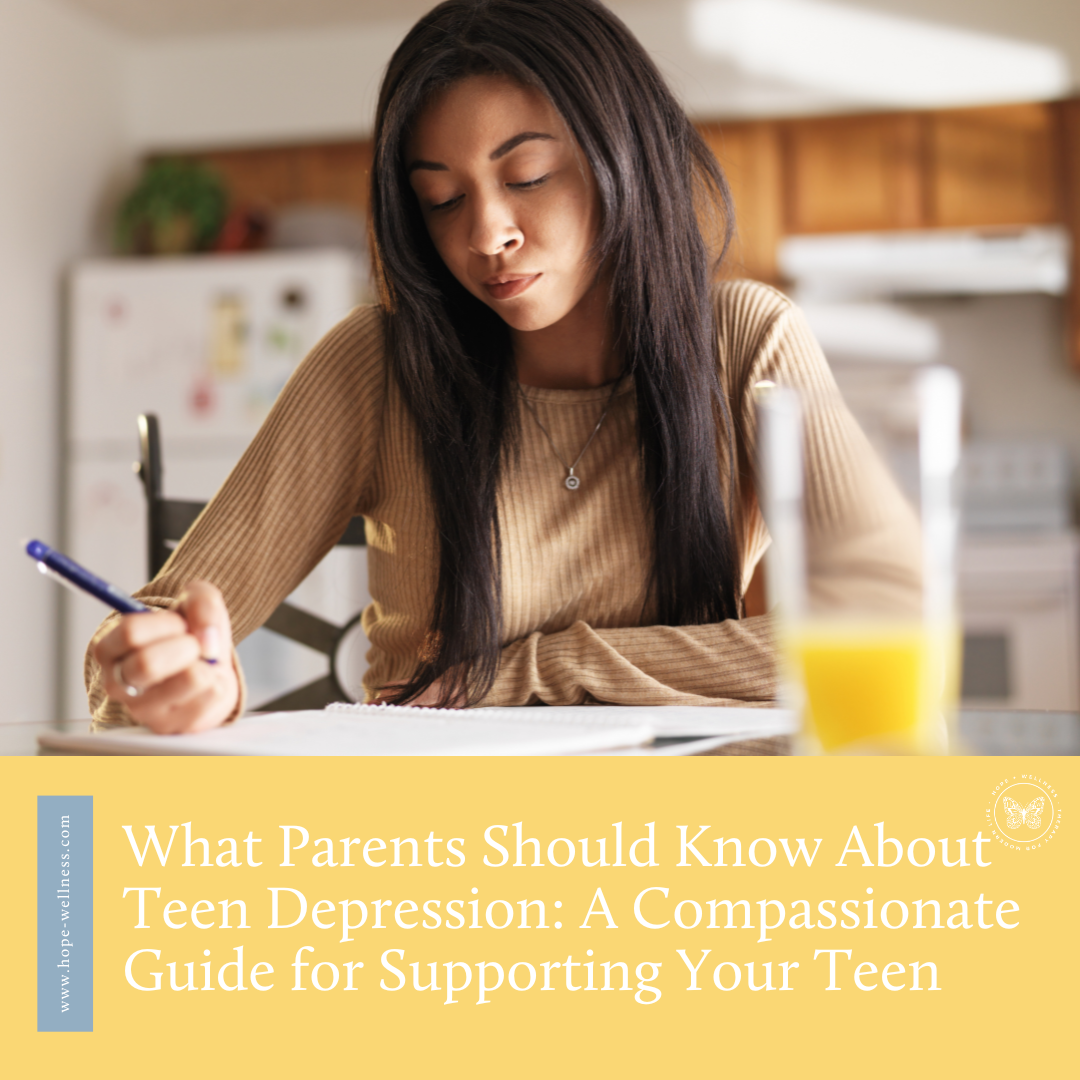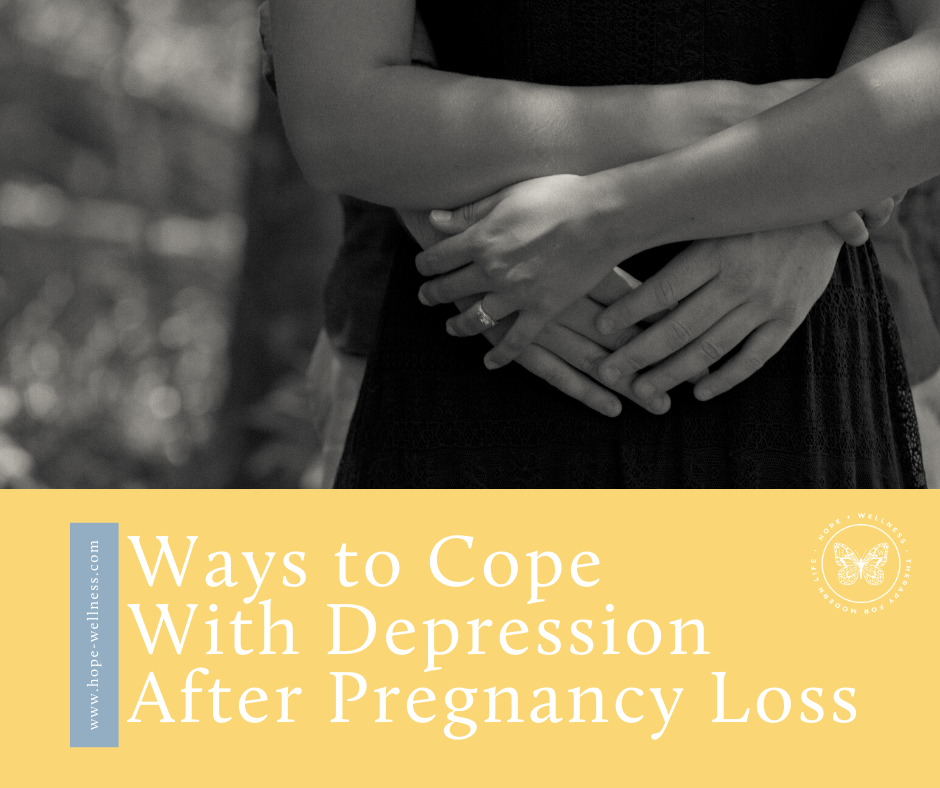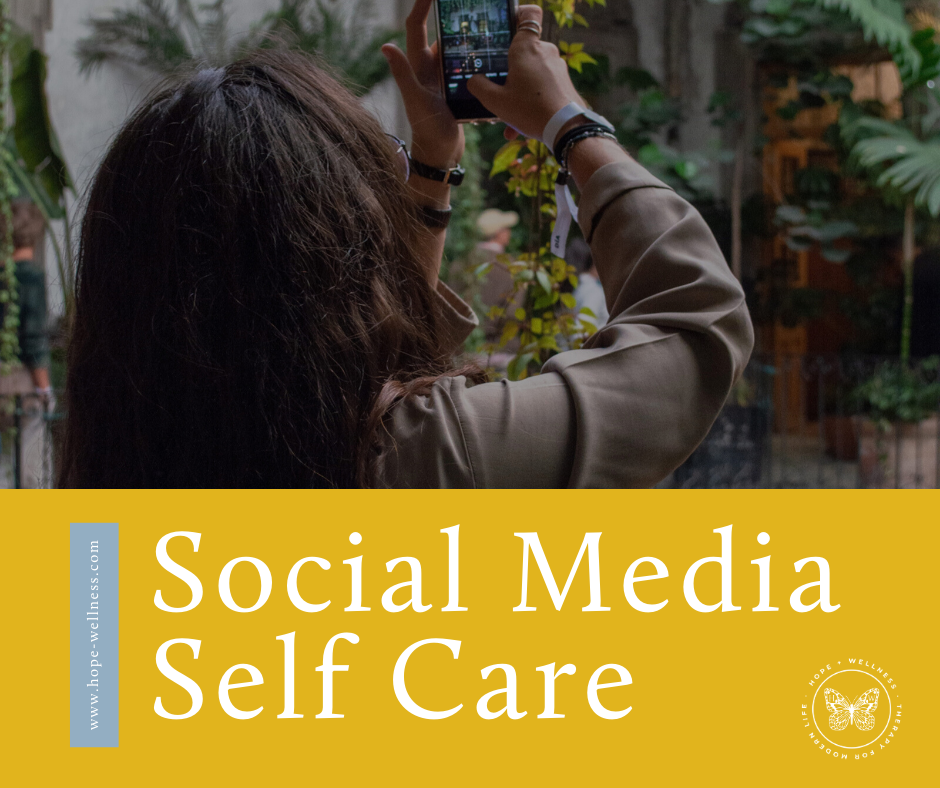
Hope +Wellness Blog
little snippets of advice for everyday challenges many people share

What Parents Should Know About Teen Depression: A Compassionate Guide for Supporting Your Teen
It’s a hard place to be, and the first thing to know is that you’re not alone. This is something lots of other parents have to manage, and while it can feel overwhelming, there are things you can do to help. Try to remind yourself that depression is treatable, so your teen won’t have to feel trapped in these feelings forever.

What to Do When Life Feels Meaningless
What can you do when life feels meaningless? Remember, you’re not alone, and you won’t feel this way forever. Here are 6 suggestions for what you can do when life feels meaningless:

How to Motivate Yourself to Do Boring Life Tasks
Many of us struggle even more this time of year due to the short, darker, colder days. We’re getting less sunlight and our brain is producing more melatonin because of that, which means we’re more likely to be tired all the time!
So how can you motivate yourself to do boring self care tasks?

3 Coping Skills for Managing Depression
While regular therapy and medication are an excellent treatment plan for chronic depression, it can be helpful to have a few coping skills of your own to use for times when you’re finding your depression hard to manage.

4 Signs That Your Funk Could Be the Result of Depression
If you’re in a funk after spending the last year away from your loved ones, you’re not alone! Many people are feeling a sort of covid-burnout at the moment. Here are some ways to tell if the funk you’re feeling is the result of depression:

6 Ways People Have Described What Depression Feels Like
If you have never experienced depression, it can be hard to understand what it is really like to experience it. When you hear the word depressed, likely you think of sorrow or grief, but that often isn’t how depression shows up for people who deal with it chronically.
While sorrow and grief can make you feel depressed, experiencing depression is much more than just those feelings.
So what is it really like? Here’s how depression has been described by those who experience chronic depression.

Ways to Cope with Depression After Pregnancy Loss
For many women, pregnancy can be a really uncertain time - excitement, fear, anxiety, hope all come into play. Many pregnancies do lead to healthy babies, but unfortunately, that’s not the reality for everyone. Although it’s still considered culturally taboo to discuss pregnancy loss, the truth is that not all pregnancies end with a healthy infant. It’s hard to imagine an unsuccessful pregnancy, but roughly 10-20% of pregnancies end in miscarriage.

How to stop social media from making you feel bad about yourself
When you think of self care practices, do you ever consider your social media?
While social media is great for so many things (keeping up to date with friends who live far away, finding new music or movies or other cultural events, staying on top of local events, just to name a few) it’s not something we should use mindlessly.

4 Tips for Coping with Depression
Everything feels harder when living with depression. You drag yourself out of bed and force yourself to get through the day. Friends invite you to go out, but you find yourself preferring to stay in. You try to participate in your usual activities, but they no longer spark joy.
Hope+Wellness is a mental health practice specializing in the treatment of depression, mood, stress, and anxiety in kids, teens, and adults. This is a blog about living well and finding meaning and purpose in the face of difficult challenges. This is a blog about finding hope.
Archive
- ACT
- ADHD
- Acceptance
- Anxiety
- Authenticity
- Belonging
- Bipolar
- CBT
- Calming
- Change
- Chronic Illness
- Chronic Pain
- Communication
- Community
- Coping Skills
- DBT
- Dating
- Depression
- EMDR
- Emotions
- Entrepreneurs
- Friendship
- Gratitude
- Grief
- Health Psychology
- Hope
- Inspiration
- Intimacy
- Intuition
- Joy
- Letting Go
- Love
- Manic Depression
- Mindfulness
- Miscarriage
- OCD
- Parenting
- Personal Growth
- Positive Vibes
- Quotes
- Relationships
- Resources
- Self-Compassion
- Self-Reflection
- Services
- Sleep
- Spirituality
- Stress Management
- Stress Relief
- Suffering